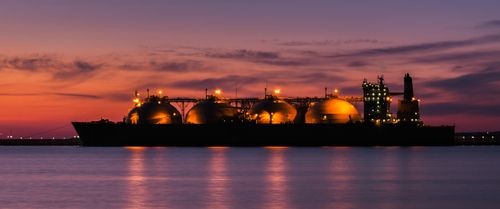The Russia-Ukraine war: what are the risks for the Arab countries?
Ahmad Abdul-Rahman writes about the risks that the Russian-Ukrainian crisis poses to Arab countries.
As the world's eyes turn to Ukraine because of Russia's war there, the escalating crisis between the two countries has repercussions beyond the European continent. They will be felt thousands of miles away in the Arab region.
What are the potential risks that the Ukrainian-Russian crisis poses to Arab countries? And how can they be dealt with?
Energy
The West has responded to any Russian aggression against Ukraine with economic sanctions. They have emerged as a major tool in the West's arsenal for dealing with Russia.
But this represents a double-edged sword. On the one hand, imposing sanctions on the Russian oil and gas sector is a blow to Moscow, whose oil and gas exports to Europe are a major source of its economy. On the other hand, this step may mean that the EU economies will suffer, given their heavy dependence on Russian oil and gas.
"The European Union depends more than 40 per cent on Russian gas, while Russian oil exports to the European Union amount to about 27 per cent of its total oil supplies. This gives Russia significant power in the EU gas and oil market," said Dr. Mamdouh Salameh, an international oil economist, a consultant to the World Bank in Washington DC and a technical expert of the United Nations.
The Europeans and their American allies consider the Arab gas and oil producing countries such as Qatar, Saudi Arabia, Algeria and others as a source that can make up for some of the shortfall in gas and oil supplies to Europe. At the end of January, the role that Qatar, which ranks as the second largest producer of liquefied natural gas in the world, can play to compensate for any possible shortfall in Russian gas supplies to Europe was key in US President Joe Biden's talks with Qatar's Emir Tamim bin Hamad. Al Thani, during the latter's visit to Washington.
However, Salameh believes that the negotiations that the US and the EU are conducting with Qatar and other major natural gas producers in the world are nothing more than efforts to "mitigate the damage".
In addition to the role that the US and its European partners hope that the Arab gas-producing countries will be able to play in making up for the shortfall in Russian gas supplies to Europe, Washington DC is looking forward to the major oil producers in the Arab world, led by Saudi Arabia, contributing to preventing the sharp rise in oil prices, by increasing their oil production.
Geopolitical balances
Julian Barnes-Dissy, director of the Middle East and North Africa (MENA) program at the European Council on Foreign Affairs, agrees with Salameh on the limited ability of Arab oil and gas producing countries to compensate for the shortfall that may be caused by the decline or suspension of Russian energy supplies to Europe. But he indicates that the role that these countries may play in filling part of the shortage and maintaining the stability of oil prices globally, may give them space to strengthen or restore their relations with European countries and the US and exercise a degree of influence.
At the same time, Dissy warns of the challenges that the countries of the region may face, which will find themselves forced to balance their relations with Western countries with their relations with Russia. In turn, Russia has many interests with a number of Arab countries.
"These countries will have to tread very carefully to ensure that they take advantage of the opportunities that the crisis creates, without creating more pressure on themselves or harming their relationship with Russia if they appear to be taking sides in the crisis", Dissy was quoted as saying on 24 February by the BBC News Arabic.
Food security
Regardless of their location or political position toward Russia or the West over Ukraine, many Arab countries find themselves facing a serious challenge, This is the impact that the escalation of the conflict in Ukraine may have on the region's supplies of agricultural materials, especially wheat, and on food prices.
Exports from Russia and Ukraine, especially wheat and grain, represent 23 per cent of the world market, They also supply a quarter of the world's grain production. The vast majority of Ukraine's grain exports are distributed through the Black Sea.
MENA analyst at the European Council on Foreign Relations Kelly Pettilo sees the escalation in Ukraine as having "extremely dire consequences for food security in the Middle East and North Africa". MENA accounted for 40 per cent of Ukraine's corn and wheat exports in 2021.
What exacerbates the situation, according to Petillo, is that the expected rise in prices as a result of the crisis comes at a time when food prices have already reached historically high levels, especially in the Middle East. In the region, prices have risen over the past two years, "as a result of a toxic mixture of conflict, political grievances, and a growing economic collapse".


Comments